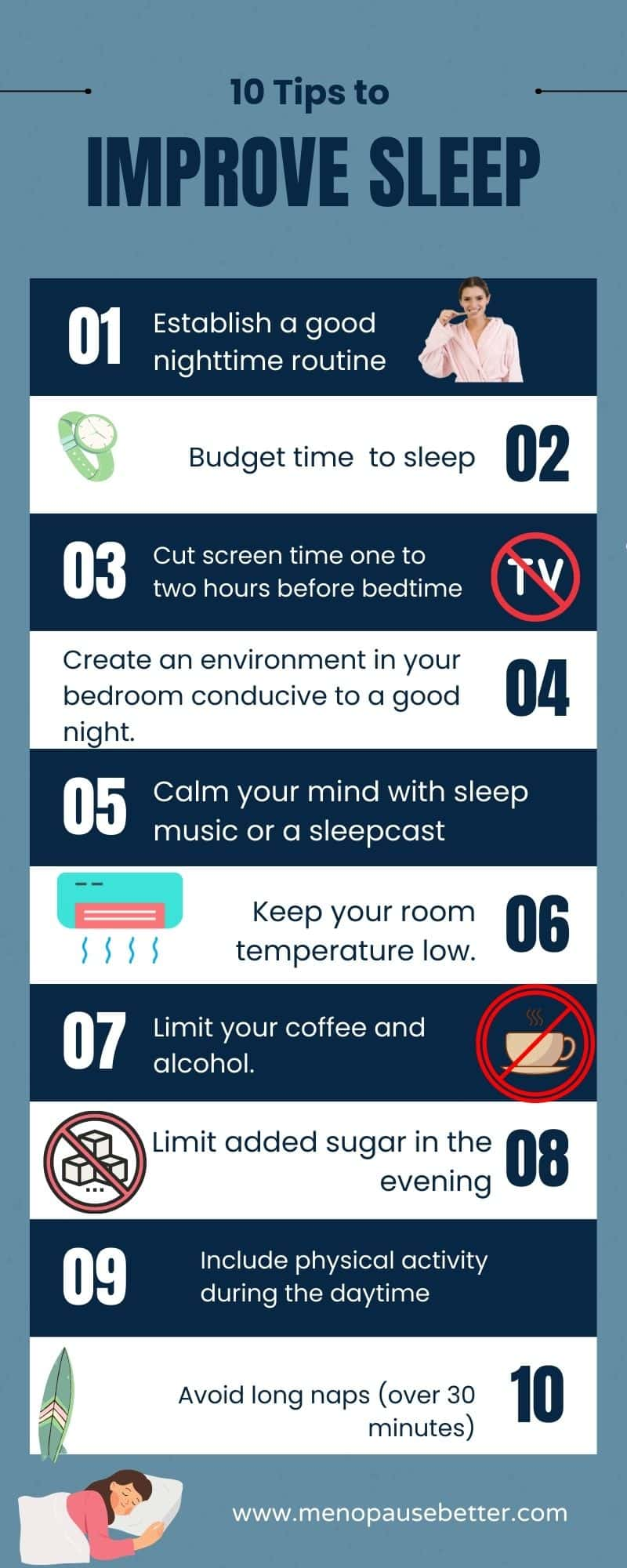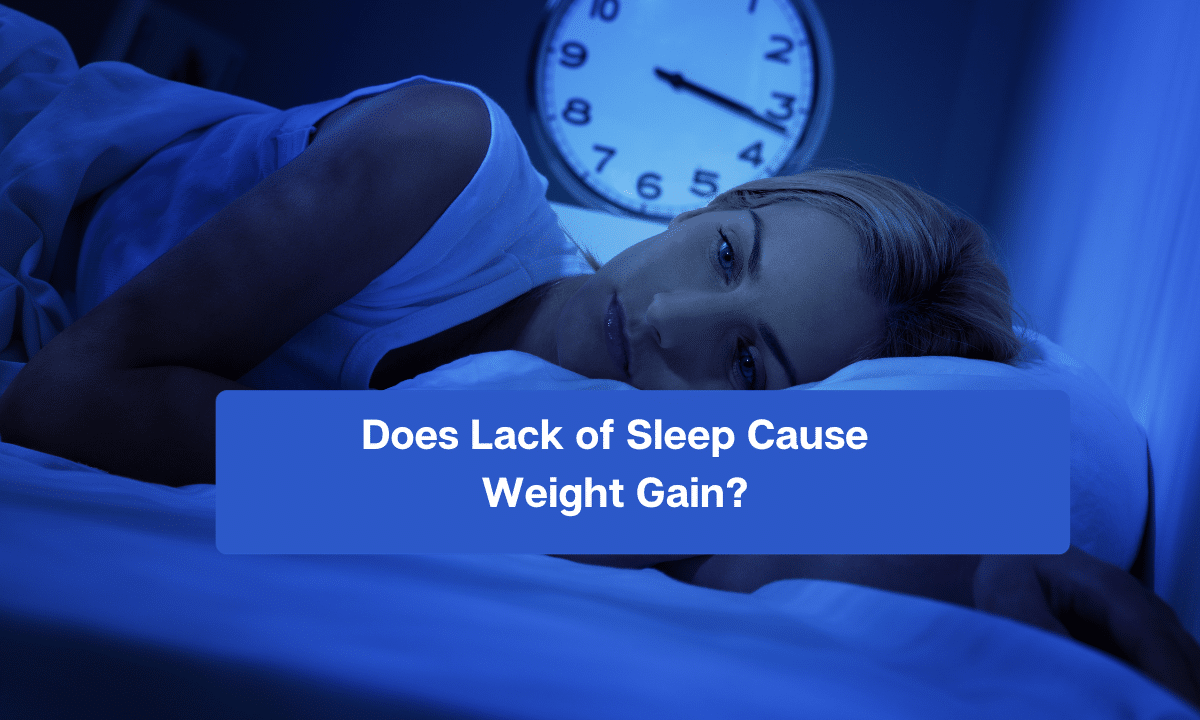Does Lack of Sleep Cause Weight Gain?
Sleep is undoubtedly important for our overall health and well-being. It’s a vital process during which our bodies are repaired, renewed, and regenerated.
Table of Contents
TogglePerhaps it’s unsurprising, then, that lack of rest can contribute to weight gain by disrupting our hormones and changing our behavior. Poor sleeping habits can impact the hormones that regulate hunger and appetite; and it can also affect the way our brain makes decisions about food.
This article will explore the connection between sleep and weight gain.
A restorative night’s sleep is not a luxury, it’s a necessity.
How Sleep Can Contribute to Weight Gain
Are you eating a healthy, balanced diet and still not losing weight?
Increased Hunger
Not getting enough rest changes the normal function of the hormones that regulate your appetite. It increases the production of ghrelin, a hormone that makes you feel hungry. With increased levels of ghrelin, you will be more prone to overeat, leading to weight gain.
Decreased Satiety
On the other hand, sleep deprivation reduces the levels of leptin, a hormone responsible for signaling fullness and satiety. This means that even if you have consumed enough food, your body will not receive the signal to stop eating, leading to overeating and weight gain.
Increased Cravings
Lack of sleep also affects the brain’s reward system, making unhealthy food choices more appealing. This is because inadequate sleep impairs the prefrontal cortex, the part of the brain responsible for decision-making and impulse control.
This can lead to increased cravings for high-calorie, unhealthy foods, potentially resulting in weight gain.
The perfect storm! Let’s put it all together. Lack of sleep makes you hungry, disturbs the signal that makes you feel satisfied, AND increases cravings for high-fat, high-sugar foods. This creates the perfect storm for weight gain, as you are more likely to overeat and make unhealthy food choices.
But the story doesn’t end here, there’s more.
Sleep and Insulin Resistance
Insulin is the hormone that enables cells to take glucose from food (aka energy from carbohydrates) so that every body part can operate at its most efficient and effective.
Lack of sleep decreases insulin sensitivity. This means that insulin is unable to bring glucose inside the cells.
The result? The body panics and responds by making more insulin. This excess insulin makes most people feel hungrier, and they then eat more.
Sleep and Stress
Research has shown that stress increases when you are sleep-deprived because the body produces more cortisol and adrenaline to compensate.
High stress levels can lead to overeating, with choices often resulting in foods that are high in calories.
Another way lack of rest affects our stress levels is by impairing the brain’s ability to regulate emotions. This leads to mood swings, irritability, and difficulty in managing stress, creating a vicious cycle in which lack of sleep causes stress, and increased stress leads to lack of sleep.
Lack of Motivation to Exercise
When you’re sleep-deprived, it’s common to experience a decline in energy and motivation, including the desire to exercise. Getting enough sleep is crucial for restoring the body and mind. Without sufficient rest, you may feel lethargic, fatigued, and less inclined to engage in physical activity.
How Much Sleep do You Really Need?
The Sleep Foundation’s guidelines recommend that adults between the ages of 26 and 64 sleep from 7 to 9 hours each night.
However, the exact number of hours you need to get sufficient rest to start a new day full of energy varies from one person to another. Moreover, the quality that you get and the timing also determine how rested you feel.
Tips to Improve Sleep
Despite all of this bad news on how lack of sleep can negatively impact your day-to-day life, there are very basic steps you can take to improve your rest habits and get the most out of your shut-eye.
Here are some tips for getting a good night’s sleep:
- Establish a good nighttime routine.
- Budget time for it and avoid sleep procrastination.
- Cut screen time one to two hours before bedtime so your melatonin production can begin at the appropriate time.
- Create an environment in your bedroom conducive to a good night.
- Calm your mind with appropriate music or sleep cast.
- Keep your room temperature low.
- Limit your coffee and alcohol, especially in the evening.
- Limit added sugar in the evening time.
- Participate in physical activity during the daytime, as that will promote a more restful night.
- Avoid long naps (over 30 minutes)
The Sleep Foundation has excellent resources to help you sleep better. Specifically for menopause, I recommend this resource from the same organization.

The Bottom Line
Most people know that getting a good night’s sleep is important, but many don’t realize just how essential it is for achieving or maintaining a healthy weight.
Your rest habits impact your hormones, and that has a direct impact on your body’s ability to manage emotions and appetite.
Luckily, strategies to improve sleep are simple. They just require some consistency over time to experience tangible improvement.
Sweet dreams!

Dr. Su-Nui Escobar, a Registered Dietitian/Nutritionist in Miami, FL, is dedicated to empowering women in perimenopause and menopause to live healthier, more satisfying lives.
With a doctorate in clinical nutrition from the University of North Florida, she has expertise in menopause and weight loss, including the unique challenges faced by those on weight loss medications.
Su-Nui’s passion for her field is evident in her previous role as the Academy of Nutrition and Dietetics spokesperson.


